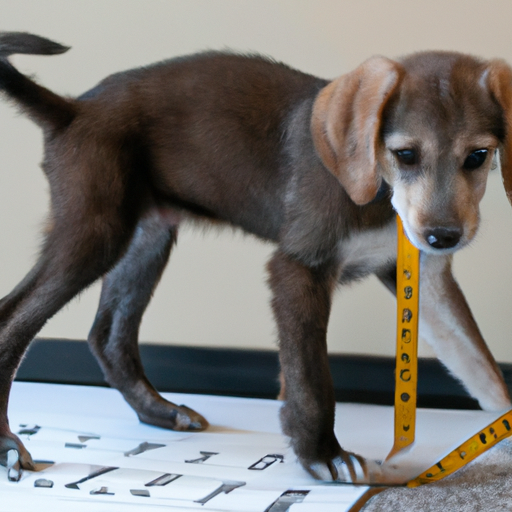As a passionate dog owner, understanding the growth process of your furry friend is crucial. It helps you provide the right nutrition, exercise, and care that your dog needs at different stages of its life.
Understanding The Growth Process of Dogs
Dogs, like humans, go through different stages of growth. They start as puppies, grow into adolescents, and eventually become adults. The exact age at which a dog stops growing depends on its breed and size. Generally, small breeds stop growing sooner than larger breeds.
- Small Breeds: Typically stop growing between 6 to 8 months.
- Medium Breeds: Usually stop growing between 12 to 15 months.
- Large Breeds: Can continue to grow until they are 18 to 24 months old.
Factors That Affect a Dog’s Growth
Several factors can affect when a dog stops growing. These include:
- Genetics: The breed of a dog largely determines its size and the age at which it will stop growing.
- Nutrition: A balanced diet is essential for a dog’s growth.
- Health: Certain health conditions can affect a dog’s growth.
Signs That Your Dog Has Stopped Growing
Here are a few signs that your dog may have stopped growing:
- Teeth: Adult teeth typically come in by 6 months. After this, no more teeth growth occurs.
- Height and Weight: Once your dog has reached its maximum height and weight (which varies by breed), it has likely stopped growing.
How to Ensure Healthy Growth
As a caregiver, ensuring your dog’s healthy growth is your responsibility. Here are some tips to help you:
- Provide a balanced diet: Make sure your dog gets the right amount of proteins, carbohydrates, and fats.
- Regular exercise: Regular physical activity helps in proper growth and development.
- Regular vet check-ups: Regular vet visits can help detect any potential health issues early.
What If My Dog Is Not Growing?
If you suspect your dog is not growing as expected, it’s essential to consult a vet. They can check for underlying health conditions. Some common causes of stunted growth in dogs include:
- Poor nutrition
- Parasites
- Serious illness
Growth-Related Health Issues in Dogs
Dogs can have growth-related health issues, especially large breeds. These include:
- Hip dysplasia: This occurs when a dog’s hip joint doesn’t develop correctly, resulting in arthritis.
- Osteochondrosis: This is a condition that affects the joints and can cause lameness.
| Condition | Symptoms | Treatment |
|---|---|---|
| Hip dysplasia | Limping, difficulty standing up, reluctance to exercise | Medication, physiotherapy, surgery |
| Osteochondrosis | Lameness, swelling in the joint | Rest, medication, surgery |
FAQ
Q: When do small breed dogs stop growing?
A: Small breeds typically stop growing between 6 to 8 months.
Q: What are the signs my dog has stopped growing?
A: The most common signs are no more teeth growth and reaching maximum height and weight.
Q: What if my dog is not growing?
A: If you suspect your dog is not growing as expected, it’s essential to consult a vet.
Q: What are some growth-related health issues in dogs?
A: The most common are hip dysplasia and osteochondrosis.
Understanding your dog’s growth process can help you provide the best care possible. Always remember, each dog is unique, and growth rates can vary even within the same breed. Your love and care as a caregiver are the most important factors in ensuring your dog grows into a healthy, happy adult.



